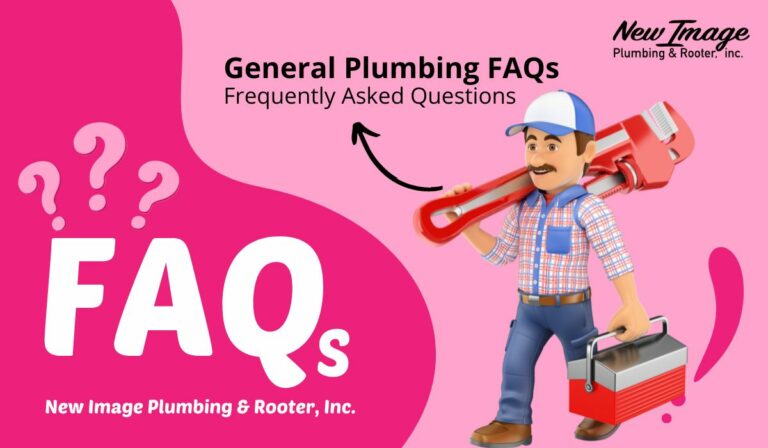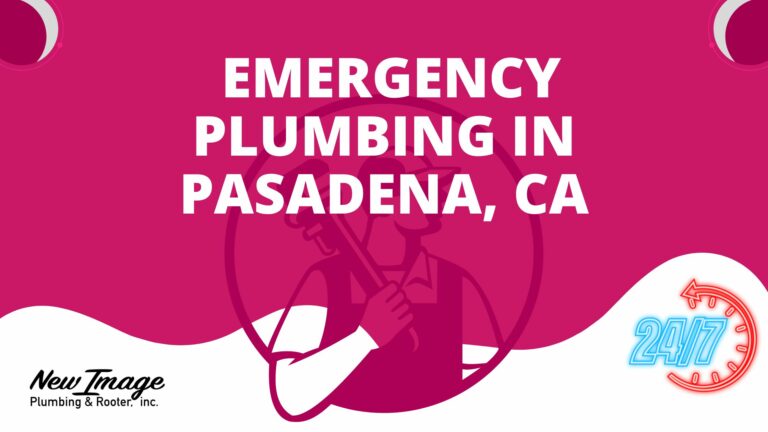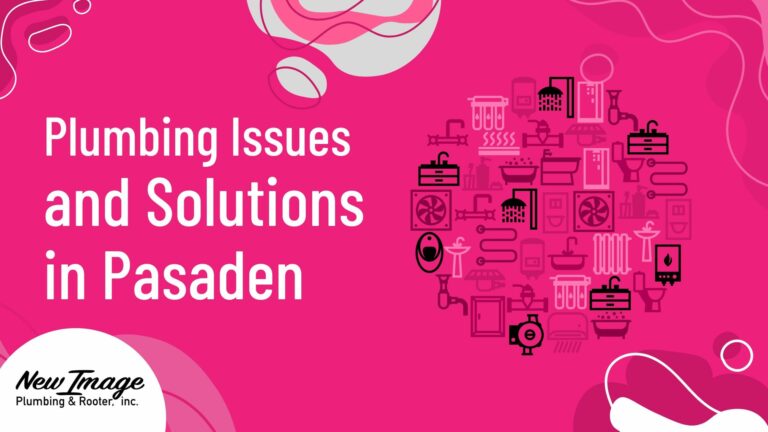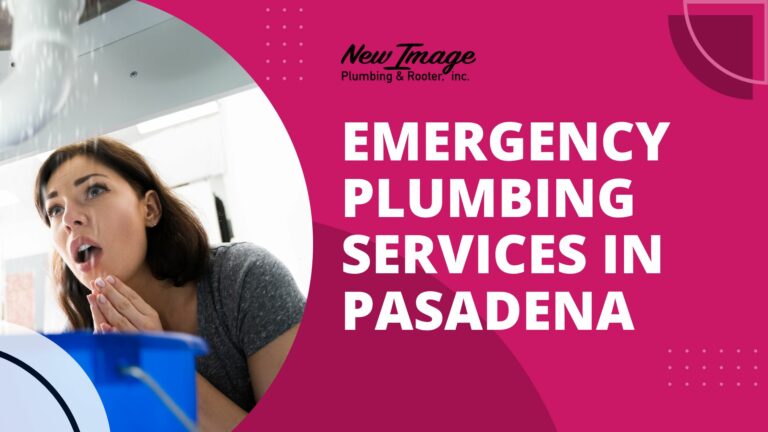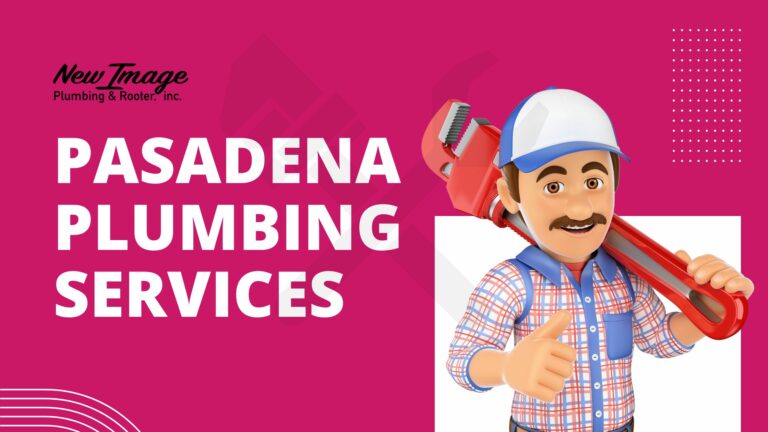Plumbing Frequently Asked Questions: Plumbing Issues
Welcome to our comprehensive guide on plumbing frequently asked questions (FAQs). Plumbing issues can be a source of frustration and concern for homeowners and businesses alike. Whether you’re dealing with a leaky faucet, a clogged drain, or concerns about frozen pipes, having the right information is essential.
In this resource, we’ve compiled a list of common questions people have about plumbing, along with detailed answers to help you better understand and address these issues. Our goal is to empower you with knowledge and solutions, making it easier to tackle plumbing problems effectively and make informed decisions about your plumbing needs.
From understanding signs of plumbing problems to learning about preventive measures and the benefits of professional plumbing services, we’ve got you covered. Whether you’re a seasoned DIY enthusiast or prefer to leave the plumbing work to the experts, you’ll find valuable insights here.
Let’s dive into the world of plumbing FAQs and equip you with the information you need to maintain a functional and efficient plumbing system in your home or business.
Table of Contents
General Plumbing FAQs:
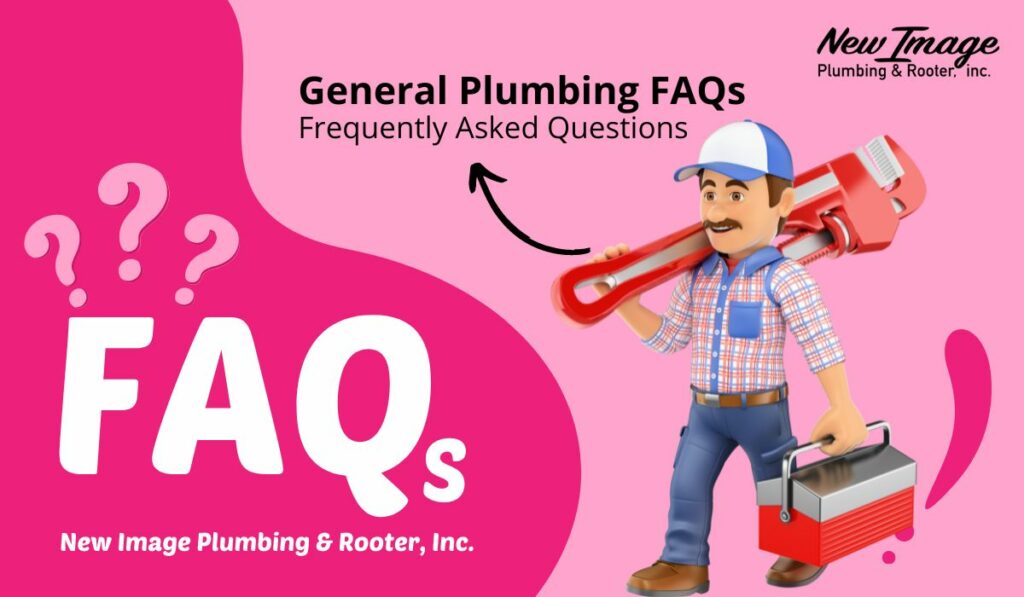
1. What are the common signs of a plumbing problem?
- Common signs of plumbing issues include:
- Slow Drains: Water draining slowly from sinks, showers, or tubs.
- Low Water Pressure: Insufficient water flow from faucets or showerheads.
- Strange Noises: Gurgling or banging sounds from pipes.
- Leaks: Visible water leaks or water stains on walls or ceilings.
- Foul Odors: Unpleasant odors coming from drains or pipes.
These signs indicate potential problems that should be addressed promptly to prevent further damage.
2. How can I prevent frozen pipes during winter?
- To prevent frozen pipes during cold weather:
- Insulate Pipes: Wrap exposed pipes with insulation to keep them warm.
- Drip Faucets: Allow faucets to drip slightly to prevent freezing.
- Open Cabinet Doors: Keep cabinet doors under sinks open to allow warm air to circulate.
- Seal Leaks: Seal any gaps or cracks in walls or around pipes where cold air can enter.
- Disconnect Hoses: Disconnect garden hoses and drain outdoor faucets.
These precautions can help prevent frozen pipes and potential bursts.
3. What should I do if I have a water leak in my home?
- If you discover a water leak in your home:
- Shut Off Water: Locate the main shut-off valve and turn off the water supply.
- Mitigate Damage: Clean up excess water to prevent further damage.
- Call a Plumber: Contact a licensed plumber to assess and repair the leak.
Taking swift action can minimize damage to your property.
4. How often should I schedule plumbing inspections?
- It’s advisable to schedule plumbing inspections annually. During an inspection, a professional plumber can:
- Identify hidden issues.
- Check for leaks or corrosion.
- Ensure fixtures and connections are in good condition.
- Test water pressure and temperature.
- Provide maintenance recommendations.
Regular inspections help catch problems early, saving you from costly repairs later.
5. What are the potential dangers of ignoring a plumbing issue?
- Ignoring plumbing problems can lead to various risks, including:
- Water Damage: Leaks can cause structural damage, mold growth, and damage to belongings.
- Health Hazards: Mold and mildew from moisture can lead to health problems.
- Higher Bills: Undetected leaks or inefficiencies can result in higher water bills.
- Structural Damage: Prolonged issues can compromise the integrity of your home.
Promptly addressing plumbing problems is crucial to avoid these risks.
6. Is it safe to use chemical drain cleaners?
- While chemical drain cleaners can clear clogs, they have drawbacks:
- Corrosive: Chemicals can corrode pipes over time.
- Environmental Impact: Harsh chemicals harm the environment.
- Health Concerns: Inhalation or skin contact with chemicals can be hazardous.
It’s often safer to use mechanical methods or consult a plumber for clog removal.
7. What should I do in case of a plumbing emergency at night or on the weekend?
- In a plumbing emergency, follow these steps:
- Shut Off Water: Locate the main shut-off valve and turn it off.
- Contain the Issue: Use buckets or towels to contain water.
- Contact an Emergency Plumber: Call an emergency plumbing service for immediate assistance.
Emergency plumbers are available 24/7 to address urgent issues.
8. How do I locate the main shut-off valve for my water supply?
- The main shut-off valve is typically located:
- In the basement or crawl space for homes with basements.
- Near the water meter or where the water line enters your home.
- In an outdoor pit or valve box for some properties.
Familiarize yourself with its location to act quickly in case of a water emergency.
9. Can I replace a faucet or fixture on my own, or should I call a plumber?
- Simple faucet or fixture replacements can be DIY projects if you have basic plumbing skills. However, for complex installations or if you’re unsure, it’s best to hire a plumber. Incorrect installations can lead to leaks or damage.
10. What should I do if my water pressure is too low or too high?
Low water pressure can result from clogs or pipe issues, while high pressure can stress pipes and fixtures. To address low pressure, check for obstructions, clean aerators, and repair leaks. For high pressure, consider installing a pressure regulator to maintain safe levels.
Proper water pressure ensures efficient plumbing and appliance performance.
Bathroom Plumbing FAQs
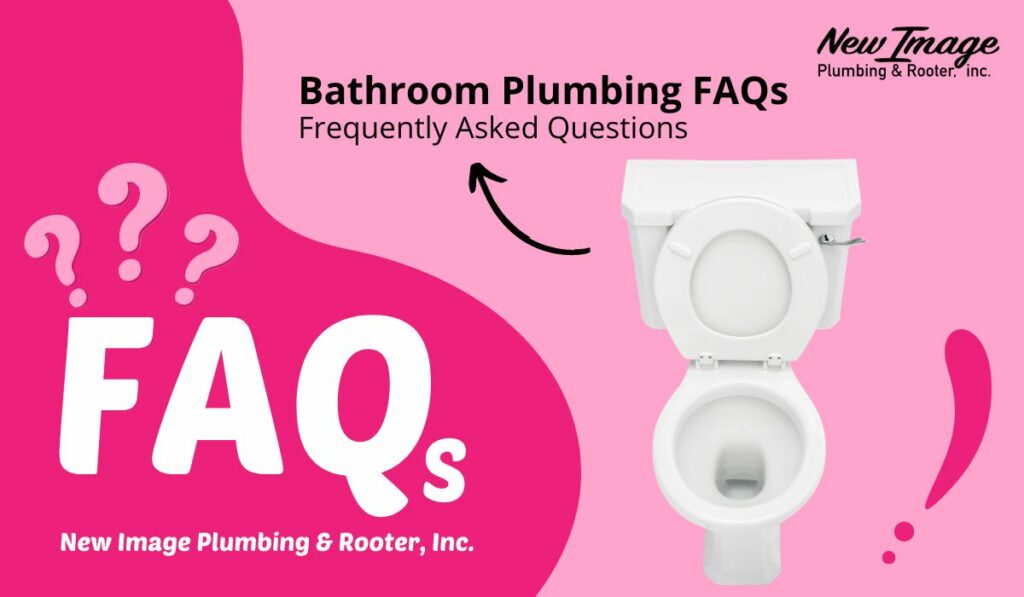
Bathroom plumbing can be a complex and vital part of your home’s infrastructure. From toilets and sinks to showers and bathtubs, this space requires efficient plumbing to function smoothly. Here, we address some frequently asked questions about bathroom plumbing, providing detailed answers to help you better understand and manage common issues.
1. Why does my toilet keep running after flushing?
A running toilet is often due to a faulty flapper or fill valve. The flapper might not seal properly, allowing water to continuously flow from the tank to the bowl. Replacing the flapper or fill valve should resolve this issue.
2. What should I do if my toilet is clogged?
- Start by using a plunger to clear the clog. Ensure there’s enough water in the bowl to cover the plunger’s rubber cup. If that doesn’t work, you can try a toilet auger. Avoid using harsh chemicals, as they can damage the toilet.
3. How can I fix a dripping faucet in my bathroom sink?
- Dripping faucets are usually caused by worn-out or damaged washers, O-rings, or cartridges. Turn off the water supply to the faucet, disassemble it, and replace the faulty components. Make sure to turn off the water supply before starting.
4. What causes low water pressure in my shower or faucet?
Low water pressure can result from mineral buildup in the aerator or showerhead, a partially closed shut-off valve, or issues with the main water supply. Cleaning or replacing the aerator or showerhead and ensuring valves are fully open can often resolve low pressure.
5. How do I prevent bathroom pipes from freezing in the winter?
To prevent frozen pipes, insulate exposed pipes, seal gaps where cold air can enter, and keep cabinet doors open to allow warm air circulation. During extreme cold, let faucets drip slightly to keep water moving.
6. What can I do about a foul odor coming from the bathroom drain?
Foul odors may be caused by trapped debris or bacterial buildup in the drain. Try pouring a mixture of baking soda and vinegar down the drain, followed by hot water. Regular drain cleaning can also prevent odors.
7. How can I detect and fix a bathroom water leak?
- Detecting leaks involves checking for water stains, soft spots, or mold growth. To fix a leak, identify its source, which could be a worn-out seal, loose connection, or damaged pipe. In most cases, it’s best to call a plumber for repairs.
8. Is it possible to install a new bathtub or shower on my own?
While it’s possible to install a new bathtub or shower as a DIY project, it can be challenging, especially if you’re not experienced. Hiring a professional plumber ensures proper installation, preventing future issues like leaks.
9. How often should I replace the wax ring under my toilet?
Wax rings under toilets typically last for several years. If you notice water around the base of the toilet or a foul smell, it may be time to replace the wax ring. This is a job best left to a plumber.
10. What are some water-saving tips for my bathroom fixtures?
To conserve water, consider:
- Installing low-flow faucets and showerheads.
- Fixing leaks promptly.
- Taking shorter showers.
- Installing a dual-flush toilet.
- Collecting and reusing water when possible.
Properly maintaining your bathroom plumbing and addressing issues promptly can help you enjoy a fully functional and efficient space while saving water and preventing costly repairs. If you ever encounter plumbing problems beyond your expertise, don’t hesitate to contact a professional plumber for assistance.
Kitchen Plumbing FAQs
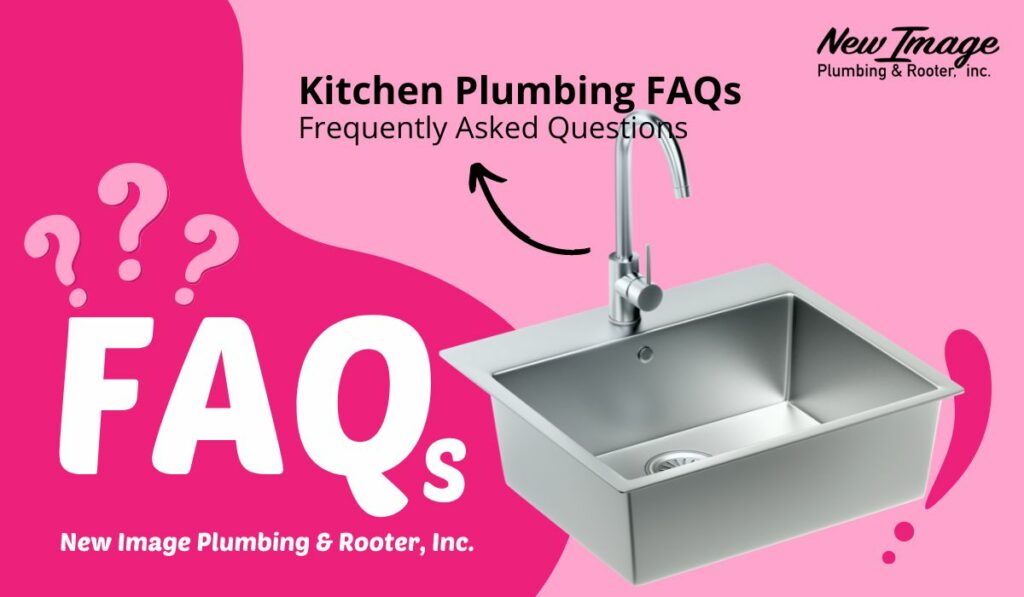
The kitchen is the heart of the home, and its plumbing plays a crucial role in daily life. From sinks and faucets to dishwashers and garbage disposals, understanding how your kitchen plumbing works and how to address common issues is essential. Here, we provide detailed answers to frequently asked questions about kitchen plumbing to help you maintain a smoothly functioning kitchen.
1. Why is my kitchen sink draining slowly?
Slow drainage in the kitchen sink is often caused by a clog in the drainpipe. You can try using a sink plunger, a drain snake, or a mixture of baking soda and vinegar to clear the clog. If the issue persists, consider calling a plumber.
2. What should I do if my garbage disposal is not working?
If your garbage disposal is not turning on or seems jammed, start by checking if it’s unplugged or tripped the circuit breaker. Never put your hand down the disposal. If the problem persists, consult the manufacturer’s manual or call a plumber for repairs.
3. How can I prevent clogs in my kitchen sink drain?
To prevent clogs, avoid pouring grease, coffee grounds, and large food scraps down the sink. Use a sink strainer to catch debris, and periodically clean the drain with baking soda and vinegar to prevent buildup.
4. Why does my kitchen faucet drip even when it's turned off tightly?
A dripping faucet is often caused by a worn-out or damaged cartridge, O-ring, or washer in the faucet assembly. Replacing these components should stop the drip. Turn off the water supply before making repairs.
5. How can I fix a leaky dishwasher connection under the sink?
Leaky dishwasher connections are typically due to loose or damaged fittings. Turn off the water supply to the dishwasher, tighten any loose connections, and replace damaged parts as needed.
6. What can I do if my refrigerator's water dispenser is not working?
Check if the water filter is clogged or needs replacing. Ensure the water supply line to the fridge is not kinked or blocked. If these steps don’t resolve the issue, consult your refrigerator’s manual or call a technician.
7. How often should I flush my water heater in the kitchen?
It’s essential to flush your water heater regularly to remove sediment buildup. Flushing once a year is a general guideline, but the frequency may vary based on the water quality in your area.
8. Is it safe to use chemical drain cleaners in the kitchen sink?
While chemical drain cleaners can clear clogs, they can also damage pipes and harm the environment. It’s best to use alternative methods like baking soda and vinegar or call a plumber for stubborn clogs.
9. Can I install a new kitchen faucet on my own?
Installing a new kitchen faucet can be a DIY project if you have plumbing experience. However, if you’re unsure about the process, it’s advisable to hire a professional plumber to ensure proper installation.
10. What are some water-saving tips for the kitchen?
To conserve water in the kitchen, consider:
- Fixing any leaks promptly.
- Using a broom instead of a hose to clean floors.
- Running the dishwasher and washing machine with full loads.
- Installing a low-flow aerator on the kitchen faucet.
By following these kitchen plumbing FAQs and their corresponding answers, you can maintain a functional and efficient kitchen while avoiding common plumbing issues. Remember that for complex problems or tasks beyond your expertise, seeking help from a licensed plumber is the best course of action.
Pipe and Leak FAQs
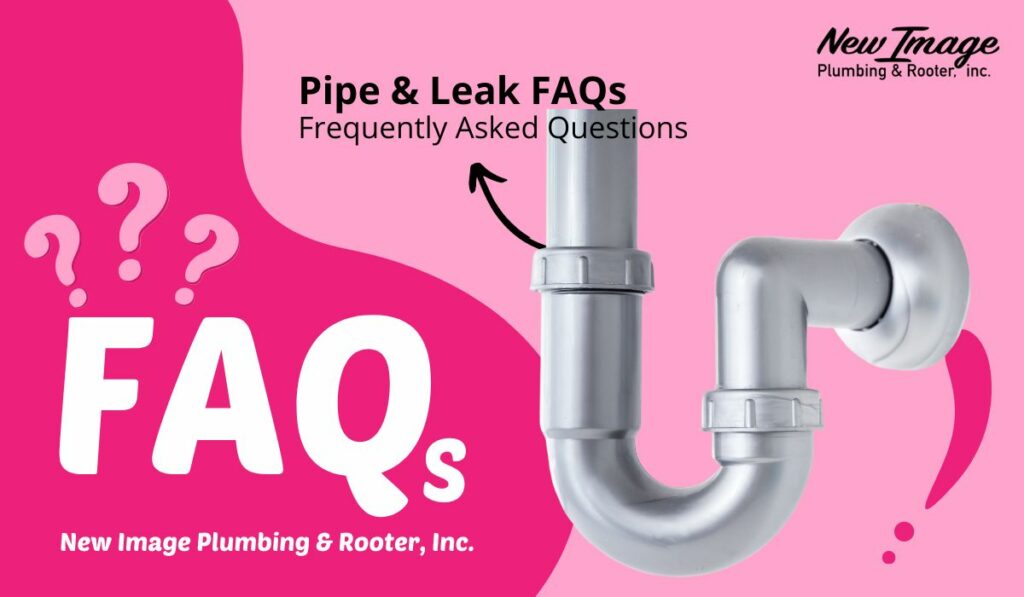
Pipes and plumbing leaks can be a source of frustration for homeowners, often leading to unexpected issues and potential damage. Understanding how to address pipe-related problems is essential for maintaining your home’s plumbing system. Here, we provide detailed answers to frequently asked questions about pipes and leaks to help you navigate these common plumbing challenges.
1. What should I do if I discover a water leak in my home?
If you notice a water leak, the first step is to turn off the water supply to the affected area or the entire house if necessary. Then, identify the source of the leak, assess the damage, and consider calling a plumber to locate and repair the problem.
2. How can I prevent frozen pipes during cold weather?
To prevent frozen pipes, insulate exposed pipes, seal gaps where cold air can enter, and keep cabinet doors open to allow warm air circulation. During extreme cold, let faucets drip slightly to keep water moving.
3. What are the common signs of a plumbing leak inside the walls or ceiling?
Signs of a hidden plumbing leak include water stains on walls or ceilings, peeling paint or wallpaper, musty odors, and a sudden increase in your water bill. If you suspect a hidden leak, contact a plumber for a thorough inspection.
4. Is it possible to repair a small pipe leak on my own?
Fixing a small pipe leak may be possible for DIY enthusiasts. You can use a pipe clamp, epoxy, or pipe repair tape to temporarily stop the leak. However, it’s essential to call a professional plumber for a permanent fix.
5. What causes water hammer, and how can it be prevented?
Water hammer occurs when fast-closing valves or faucets create pressure waves in the plumbing system. To prevent it, install water hammer arrestors, adjust water pressure, and ensure that your plumbing system is properly anchored.
6. How can I determine if my home's water pressure is too high?
High water pressure can lead to pipe damage and leaks. Use a water pressure gauge to measure the pressure at an outdoor faucet. Ideal residential water pressure is typically between 40 and 80 psi. If it exceeds this range, consider installing a pressure-reducing valve.
7. What should I do if I suspect a gas leak in my home?
If you smell gas or suspect a gas leak, leave your home immediately and avoid using any electrical devices or open flames. Do not operate light switches or use your phone indoors. Call your gas company or emergency services from a safe location.
8. Can I use pipe insulation to reduce the risk of pipe bursts in cold weather?
Yes, pipe insulation can help prevent pipes from freezing and bursting in cold weather. Insulate both hot and cold water pipes in unheated areas, such as basements and crawlspaces, to maintain a consistent temperature.
9. What are the dangers of ignoring a plumbing leak or pipe issue?
Ignoring plumbing leaks or pipe problems can lead to significant damage, including structural damage, mold growth, and increased utility bills. It’s essential to address these issues promptly to prevent costly repairs down the road.
10. How often should I schedule professional plumbing inspections for my home?
Having your plumbing system inspected by a professional plumber annually is a good practice. Regular inspections can help identify and address potential issues before they become major problems, saving you time and money.
By understanding these pipe and leak FAQs and their corresponding answers, you’ll be better equipped to handle common plumbing challenges and ensure the integrity of your home’s plumbing system. Always prioritize safety and consider seeking professional assistance for complex or potentially hazardous issues.
Water Heater FAQs
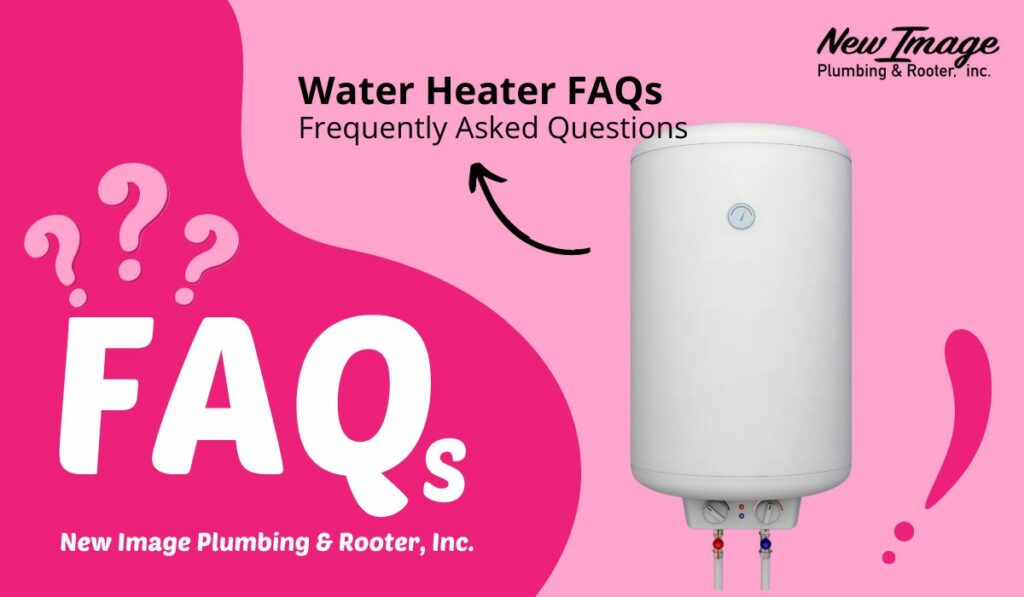
Water heaters are essential appliances that provide hot water for various household tasks. However, they can also be a source of concern when issues arise. To help you better understand and troubleshoot water heater problems, we’ve compiled a list of frequently asked questions about water heaters along with detailed answers.
1. Why is my water heater not producing hot water?
Several factors can cause this issue, including a faulty thermostat, a heating element problem, or a sediment buildup in the tank. Start by checking the thermostat settings and ensuring the pilot light is lit. If the problem persists, consider calling a plumber for further diagnosis and repairs.
2. How often should I flush my water heater?
Flushing your water heater annually is a good practice to remove sediment buildup, which can affect its efficiency. Follow the manufacturer’s instructions or consult a professional plumber for guidance on proper flushing techniques.
3. What are the signs that my water heater needs replacement?
Signs of a failing water heater include rusty or discolored water, frequent leaks, strange noises, and reduced hot water supply. If your water heater is over 10-15 years old and displaying these issues, it may be time to consider a replacement.
4. Can I install a water heater on my own?
While some experienced homeowners may choose to install a water heater themselves, it’s generally recommended to hire a licensed plumber for installation. This ensures compliance with local codes and safety standards.
5. Why is my water heater making unusual noises?
Unusual noises like popping or rumbling can indicate sediment buildup at the bottom of the tank. Draining and flushing the tank can help resolve this issue. If the noises persist, it may be due to a more significant problem, and a plumber should be consulted.
6. Is it possible to repair a leaking water heater tank?
Repairing a leaking tank is generally not advisable, as it can be a sign of irreversible corrosion. In most cases, the best solution is to replace the water heater to prevent potential flooding and damage.
7. What can I do to extend the lifespan of my water heater?
To prolong your water heater’s lifespan, perform regular maintenance tasks like flushing the tank, testing the pressure relief valve, and checking for leaks. Installing a water softener can also help prevent mineral buildup.
8. How do I know if my water heater's thermostat is malfunctioning?
If your water heater is not producing hot water or the water temperature fluctuates significantly, it could indicate a faulty thermostat. A plumber can perform diagnostic tests to determine if the thermostat needs replacement.
9. What should I do if my water heater smells like rotten eggs?
A sulfur or rotten egg smell is often caused by bacteria reacting with an anode rod in the tank. Flushing the tank and replacing the anode rod can help eliminate the odor. If the issue persists, consult a professional.
10. Can I switch from a traditional tank-style water heater to a tankless model?
Yes, you can switch to a tankless water heater, which offers benefits like energy efficiency and unlimited hot water. However, it may require adjustments to your plumbing system and should be installed by a professional plumber.
Understanding these water heater FAQs and their corresponding answers can help you troubleshoot common issues and make informed decisions about your water heater’s maintenance and repairs. Always prioritize safety, and consult a licensed plumber for complex problems or installations.
Plumbing Blogs & Articles
Plumbing Frequently Asked Questions | Answers for Plumbing Problems
24/7 Emergency Plumbing in Pasadena, CA: Expert Solutions When You Need Them Most
11 Steps to Hiring a Professional Plumber in Pasadena, California: Your Ultimate Guide
Frequently Asked Questions About Plumbing Issues and Solutions in Pasadena, California
Emergency Plumbing Services in Pasadena, California: Swift Solutions by New Image Plumbing & Rooter, Inc.
Pasadena Plumbing Services: Your Solution for Reliable Plumbing Solutions
The post Plumbing Frequently Asked Questions | Answers for Plumbing Problems appeared first on New Image Plumbing & Rooter, Inc..


